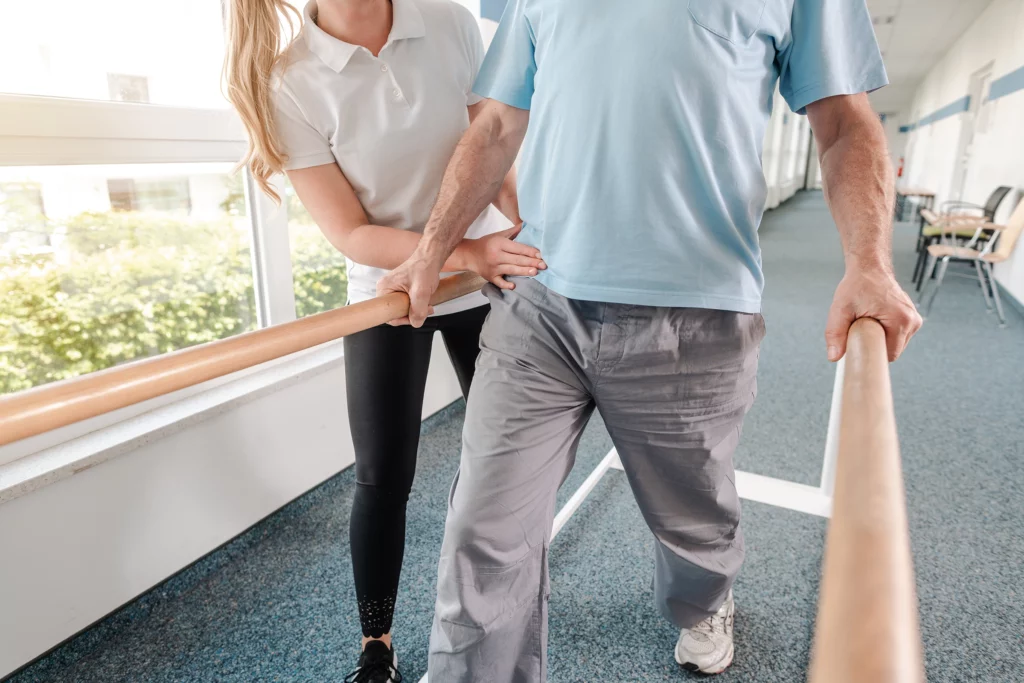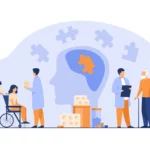
Lewy Body Dementia Treatment: A Comprehensive Guide
This post may contain affiliate links or Google Ads and we may earn a small commission when you click on the links at no additional cost to you. As an Amazon Affiliate, we earn from qualifying purchases. This is at no additional cost to you and helps with our website expenses.
Lewy Body Dementia (LBD) is a type of progressive dementia that causes problems with thinking, movement, and mood. It is the second most common type of dementia after Alzheimer’s disease. As with other forms of dementia, there is no one perfect Lewy Body Dementia treatment that helps everyone.
However, several treatments can help manage the condition. This includes medications, physical and occupational therapy, alternative medicines and methods, and lifestyle changes. Let’s take a closer look at each of these treatments.
Physical Therapy as a Lewy Body Dementia Treatment

Physical therapy can help Lewy Body Dementia patients in a number of ways. First, it can help to improve mobility and reduce fall risk. Second, it can help to reduce pain and improve joint function. Third, it can help to improve sleep quality and reduce daytime fatigue. Fourth, it can help to improve cognitive function and reduce anxiety and depression. Finally, it can help to increase social interaction and reduce isolation.
Types of Exercise and Physical Therapy to Help with Lewy Body Dementia
- Walking
- Tai Chi
- Strength training
- Core and hand strengthening
- Balance training
- Gait training
- LSVT-BIG
- Dancing
- Swimming
- Stretching
Physical therapy is an effective Lewy Body Dementia treatment because it addresses the many different symptoms of the disease. If you or a loved one has been diagnosed with LBD, talk to your doctor about whether physical therapy is right for you.
Occupational Therapy for Lewy Body Dementia
Occupational therapy can play an important role in delaying the progression of the disease and helping people to maintain their independence for as long as possible. Occupational therapists can assess a person’s home and make recommendations to help make it more accessible, such as installing ramps or grab bars.
They can also teach patients how to properly stand, bathe, dress, and prepare meals. For people with LBD, these activities can become increasingly difficult as the disease progresses. However, by receiving occupational therapy early on, patients can learn how to best manage their symptoms and live independently for a longer period of time.
If you or a loved one has been diagnosed with Lewy body dementia, talk to your doctor about whether occupational therapy is right for you.
Speech Therapy for LBD Treatment
Many people who suffer from Lewy Body Dementia also have trouble with speech and swallowing. A swallow study might be ordered by the therapist. Speech therapy can help to improve these symptoms. speech therapists can provide exercises to help with attention and listening, speaking, and swallowing difficulties. They can also provide memory activities to improve cognition and remembering.
In addition, speech therapists can also teach patients how to eat and drink in a way that minimizes the risk of choking or aspirating food or liquids into the lungs. For many people with Lewy Body Dementia, speech therapy can help to improve their quality of life.
Support Groups for Lewy Body Dementia
Support groups are one of the best ways to provide help during the LBD journey. They are a great place to share, rant, learn, and get support. Support groups provide an outlet for people to express their frustrations and feel supported by others who understand what they are going through.
In addition, support groups are a great place to learn about the latest research and treatments for LBD. There are support groups for caregivers, families, and people with LBD. Many support groups are offered online, which makes them convenient and accessible for people all over the world. Social media sites, like Facebook, also have large groups dedicated to providing support for people with LBD.
Alternative Methods
Some people with Lewy Body Dementia find relief from their symptoms by using alternative medicines.
Melatonin
One alternative medicine that has been shown to be helpful for people with Lewy Body Dementia is melatonin. Melatonin is a hormone that is produced by the pineal gland in the brain. It helps regulate sleep and wakefulness. These supplements are generally safe to use and help to treat insomnia.
CBD Oil
Another alternative medicine that has been shown to be helpful for people with Lewy Body Dementia is CBD oil. CBD oil is a type of oil derived from cannabis plants. It has been shown to be helpful in treating anxiety and seizures in people with epilepsy.
Music Therapy
Music therapy is a type of therapy that uses music to improve mental, physical, and emotional well-being. It has been shown to be effective in reducing anxiety, improving moods, and promoting relaxation. Playing soft music is one type of music therapy that can be particularly helpful in reducing anxiety and promoting relaxation. Oldies music can also be enjoyable and therapeutic for many people. Listening to oldies music can bring back pleasant memories and help to improve moods.
Pet Therapy
Pet therapy is a type of therapy that involves using animals to help people in a variety of settings. Therapy dogs are perhaps the most well-known type of pet therapy animal, and they can be found in hospitals, adult day programs, and even hospice settings. The benefits of pet therapy are well-documented, and include reduced stress levels, lower blood pressure, and increased social interaction.
In addition, pet therapy can provide emotional support for people who are dealing with difficult life events. Even your own pet dog or cat can provide hours of comfort by simply snuggling with your loved ones.
Medicines for Lewy Body Dementia Treatment
LBD is a complex disease and there is no one-size-fits-all approach to treatment. However, there are some medicines that can be effective in helping with cognition and behavior. Cholinesterase inhibitors, such as donepezil, rivastigmine, and galantamine, are commonly used to treat Alzheimer’s disease and have shown promise in treating LBD as well.
Pimavanserin (Nuplazid), a newer drug specifically approved by the FDA for hallucinations experienced by people with Parkinson’s disease psychosis also shows promise for reducing hallucinations associated with LBD—with far fewer side effects than antipsychotic medications traditionally used for this purpose which can often cause sedation or worsening confusion.
Lifestyle Changes
After a diagnosis of Lewy Body Dementia, it’s important to make some lifestyle changes to help you cope with the disease. One of the most important things you can do is to make sure your home is safe. Install adequate lighting and clear away any clutter that could cause trips and falls. Grab bars in the bathroom can also be a big help. If you have stairs, installing ramps or stair glides to make them easier to navigate might be appropriate.
It’s also important to find ways to enjoy life, despite the diagnosis. Keep a positive attitude and sense of humor. Spend time with family and friends who support you. You may need help from them at some point.
In conclusion.
A Lewy Body Dementia diagnosis doesn’t have to be the end of your story. Though there is no known cure for LBD, certain treatments can help manage symptoms and improve quality of life. If you or a loved one has been diagnosed with LBD, know that you are not alone. There are many resources available to help you navigate this new chapter in your life. Speak with your doctor about treatment options and look into support groups in your area to connect with others who understand what you’re going through.
Do you have any other treatments that you know of that can help? Let us know below in the comments.




